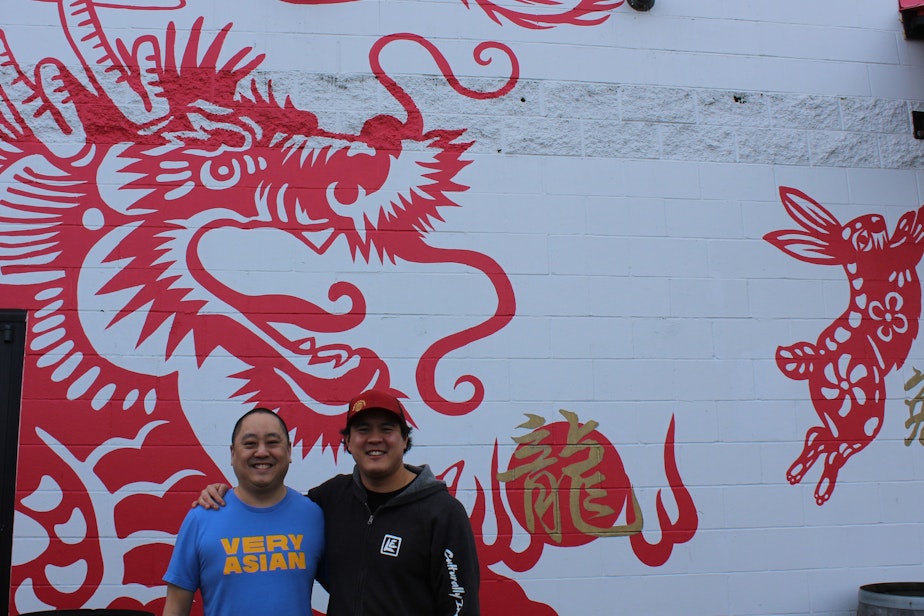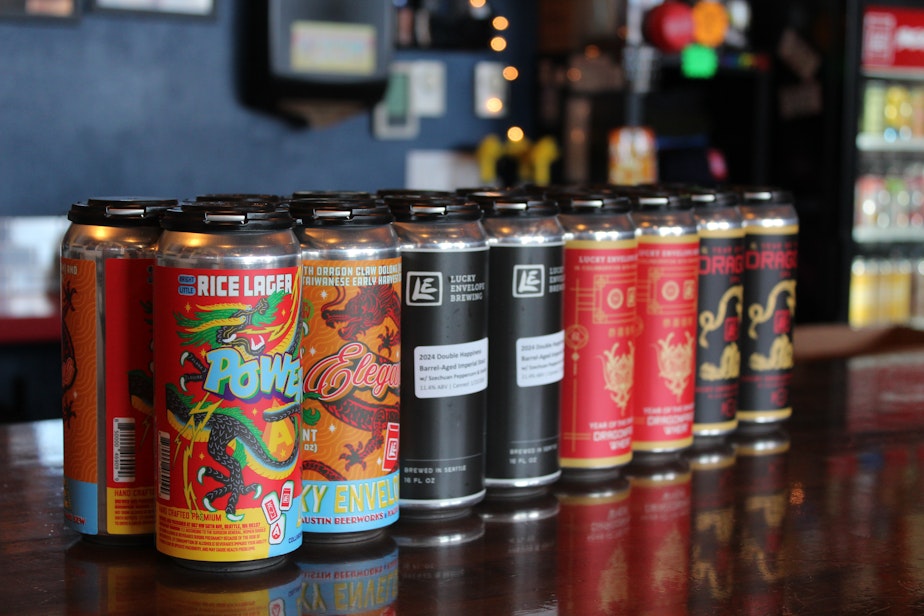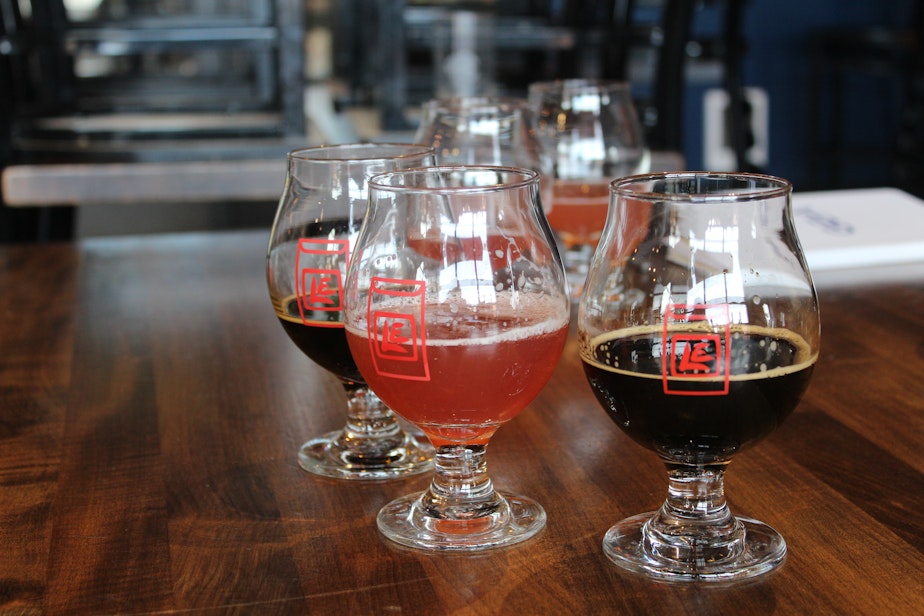A Seattle beer with dragon fruit or Sichuan peppercorns? Just in time for Chinese Lunar New Year

Lunar New Year holds special meaning for various cultures throughout Asia, and also throughout Washington state. At Seattle’s Lucky Envelope Brewing, it’s about Chinese culture, it’s about family and community, and importantly, it’s about beer.
Where else are you going to find beer made with dragon fruit or Sichuan peppercorns?
“The whole point of a lot of the major holidays in Chinese culture is to bring people together, particularly family and friends,” said Raymond Kwan, co-founder of Lucky Envelope Brewing. “And aside from your red lanterns and your lucky envelopes, it's about food and drink.”
RELATED: Will Lunar New Year become a state-recognized holiday in Washington?
Lunar New Year 2024 will bring a suite of new beers at the brewery — all special blends celebrating the holiday that begins on February 10, the start of the Wood Dragon year on the Chinese lunar calendar.
The holiday is a major celebration in many cultures across East Asia, notably China, Japan, Vietnam, and the Philippines. Lucky Envelope founders Kwan and Barry Chan are among the roughly 740,000 Washingtonians who have heritage in countries that celebrate Lunar New Year. That pencils out to nearly 10% of the state’s population. It’s so culturally significant, there is an effort in the state Legislature to recognize the holiday.

Kwan and Chen celebrate Lunar New Year by bringing people together around their brewery. This year, they shut the taproom down early to host a Lunar New Year dinner for its staff, introducing many to new foods and traditions central to the holiday. The brewery also partners with others in Seattle’s Asian-American community to host special events.
Through their beer, Kwan and Chan emphasize the importance of bringing people together. They grew up in Chinese-American households. That meant piling into homes with dozens of family members and friends to celebrate Lunar New Year. In the west, it’s akin to family Christmas gatherings.
RELATED: Craft nonalcoholic scene is brewing in Seattle, just don't call it a 'mocktail'
Each year, older generations in the family hand out red paper envelopes containing money. It’s a stand-out memory from these childhood celebrations. Today, this tradition is Lucky Envelope’s namesake.
“The color red is meant to ward off evil spirits and the money inside is supposed to bring prosperity to the person receiving it,” Kwan explained. “It was exciting to kind of tie in our cultural heritage into the name of the brewery.”
“What’s really awesome about the craft beer community is it’s really a community that revolves around drink … the correlations we see between the craft beer industry and Chinese culture — bringing people together in a community setting to share a beverage, and cheers, and share stories, and have fun. It makes everything about what we’re doing with the brewery, how we’re engaging the community, and supporting the community, much more fun.”
2024 Lunar New Year beer
Lucky Envelope Brewing’s Ballard taphouse is generally full to the brim (literally) with eclectic flavors. A stout blended with peanut butter and coffee. A sour beer featuring pureed pineapple, passionfruit, and lemon. A hard seltzer mimicking the soda cult classic Baja Blast. Each Lunar New Year adds a few more flavors to the brewery’s palate.

Chan, Lucky Envelope’s brewmaster, likes to partner with other Asian-American led beer companies for its seasonal brews. In honor of the year of the dragon, 2024’s lineup includes a Dragonfruit wheat beer, created with Highland Brewing, based in Asheville, North Carolina.
“There is a lot of symbolism in Lunar New Year celebrations,” Kwan said. “Orange is the color of gold, so they’re lucky for that. You’ll eat long noodles, because of long life. So with this [beer], we decided to have a little fun and put dragon fruit into the wheat as a little symbolic celebration.”
The dragon fruit lends the beer a pink color and a fruity flavor. The hops used in the brew are experimental and add to the tropical flavor profile.
“They're very fruity and floral and they have a lot of nice character without being overly aggressive,” Chan said.
RELATED: Washington lawmakers crack open a fresh bottle deposit bill
Also in the lineup: The Double Happiness Imperial Stout, a brew Chan returns to every year. This year, it’s flavored with vanilla and Sichuan peppercorn.
“It’s a really nice blend of chocolate, little bit of that whiskey, caramel, booziness, and the Sichuan peppercorns add this really nice earthy, floral, citrusy [flavor],” Chan said. “It feels like it's going to taste spicy, because a lot of times you're used to associating the flavor of Sichuan peppercorns with hot Sichuan cuisine, but it doesn't really get to the spicy level.”
Listen to the full conversation with Kwan, Chan and Seattle Now host Patricia Murphy by clicking the play button above.





